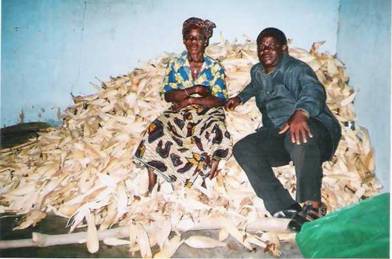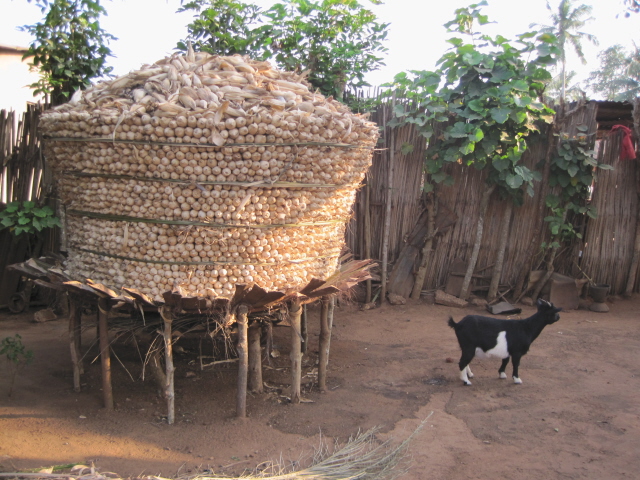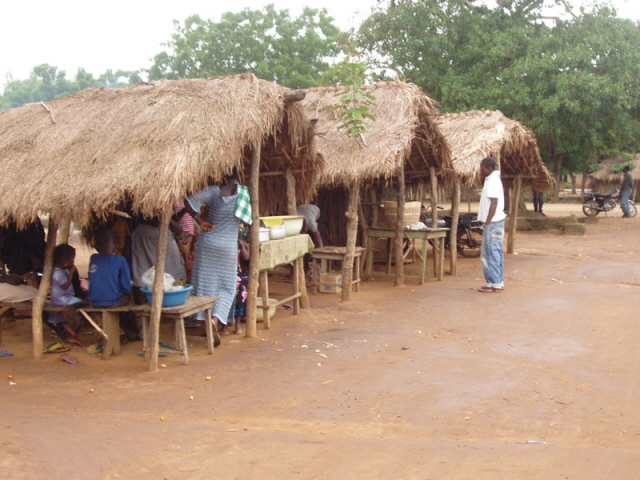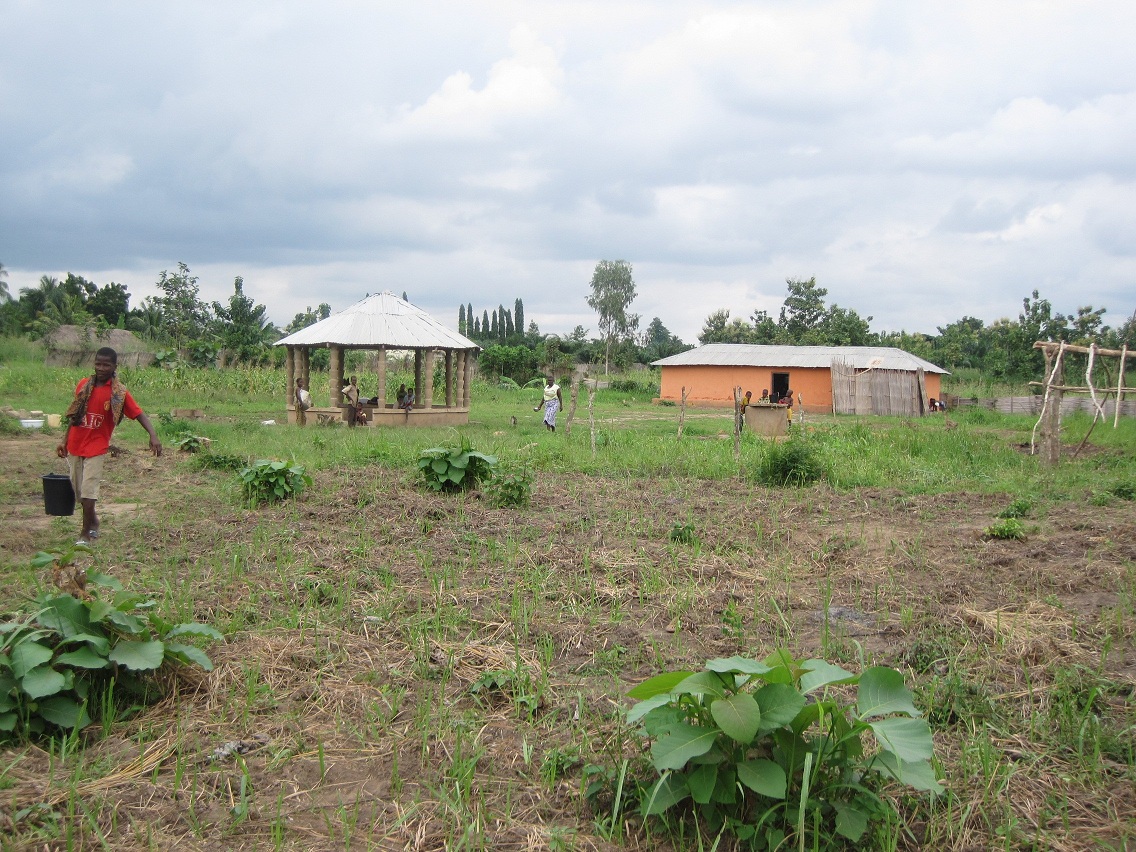 Pastor Sika and mother with first maize cropStages in project Pastor Sika and mother with first maize cropStages in project
The FIRST stage began in January 2009 and consisted of clearing and ploughing half (four acres) of the land in preparation for agricultural use, then maize and peanuts were planted. This photo shows Pastor Sika and his mother with the harvested maize in September 2009. However unfortunately, the night before the peanuts were to be harvested, there was catastrophic flooding from the nearby River Mono. This not only totally destroyed the peanut crop, but ruined or washed away most of the other villagers' harvests. Homes in several local villages were destroyed and even some lives lost. With no help at all given by the Togolese government, it took months to recover and still there are many desperate needs. Thankfully the maize harvested was a literal life-saver for the orphans and their host families during this time. Also, because of much hard work from the ministry team and other local Christians who were able to distribute clothing and help in other humanitarian ways, many in these pagan villages are now eager to hear the Gospel!
 2nd corn harvestFortunately, in spite of heavy rains early in the summer of 2010, the year's planting DID produce a wonderful crop of corn (as shown in this photo), which was planned to feed the orphans and their host families in the coming months. But once again, there were devastating floods in October 2010 which did so much damage in the region that literally thousands of people lost their homes and many fled for safety to the higher ground of Sika-Kondji. Eventually the Red Cross set up tents and sent supplies and food, but again the corn harvested for the orphans had to be shared with other needy villagers. But this all reminded us of how aptly named the Joseph Project is - God did not just save Joseph in Egypt, but THROUGH him, the lives of those all around him were saved also! 2nd corn harvestFortunately, in spite of heavy rains early in the summer of 2010, the year's planting DID produce a wonderful crop of corn (as shown in this photo), which was planned to feed the orphans and their host families in the coming months. But once again, there were devastating floods in October 2010 which did so much damage in the region that literally thousands of people lost their homes and many fled for safety to the higher ground of Sika-Kondji. Eventually the Red Cross set up tents and sent supplies and food, but again the corn harvested for the orphans had to be shared with other needy villagers. But this all reminded us of how aptly named the Joseph Project is - God did not just save Joseph in Egypt, but THROUGH him, the lives of those all around him were saved also!
 women working to help JPOne of the most important aspects of the Joseph Project is that as progress is being made, the local villagers themselves are being inspired to help. With such difficult living conditions and everyday poverty, it is not an easy task for a host family to take on the added responsibility of caring for an orphaned child. However some of the women of the families who are presently doing so have begun to sell vegetables in the local market in order to help provide for other necessities, and as more believers become active in Christian witnessing it is having an impact on other villagers. In fact as more and more visible progress is made, the Joseph Project is becoming quite well-known in the area and chiefs from surrounding villages want to learn more about it! women working to help JPOne of the most important aspects of the Joseph Project is that as progress is being made, the local villagers themselves are being inspired to help. With such difficult living conditions and everyday poverty, it is not an easy task for a host family to take on the added responsibility of caring for an orphaned child. However some of the women of the families who are presently doing so have begun to sell vegetables in the local market in order to help provide for other necessities, and as more believers become active in Christian witnessing it is having an impact on other villagers. In fact as more and more visible progress is made, the Joseph Project is becoming quite well-known in the area and chiefs from surrounding villages want to learn more about it!
 orphans doing choresAfter beginning construction in early 2011, the main buildings in the orphanage compound on the edge of the village were finally completed and the first 20 orphans moved in with the small staff in July 2012. Another successful corn harvest was gathered which helped provide food for the orphans, a water well was dug, and a vegetable garden started. Unfortunately it has not been possible to develop the farm animals yet as we would have liked because of problems with security and stealing, but the staff and children are all actively involved in moving forward with the vision of providing much of their own food. We are praying for funds to build a better security fence and be able to raise useful farm animals for food. More details can be read on the main Joseph Project page and in the Latest News orphans doing choresAfter beginning construction in early 2011, the main buildings in the orphanage compound on the edge of the village were finally completed and the first 20 orphans moved in with the small staff in July 2012. Another successful corn harvest was gathered which helped provide food for the orphans, a water well was dug, and a vegetable garden started. Unfortunately it has not been possible to develop the farm animals yet as we would have liked because of problems with security and stealing, but the staff and children are all actively involved in moving forward with the vision of providing much of their own food. We are praying for funds to build a better security fence and be able to raise useful farm animals for food. More details can be read on the main Joseph Project page and in the Latest News
|